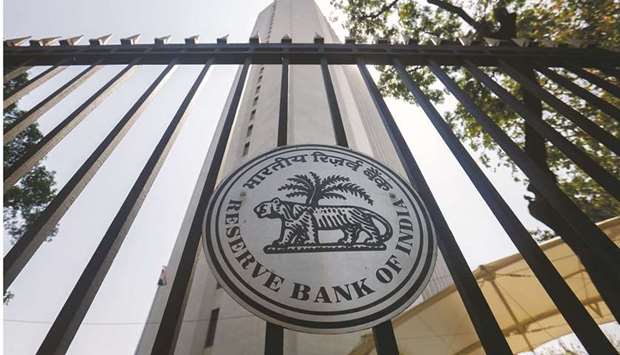The Reserve Bank of India said yesterday that its current inflation targeting regime is effective at containing price-growth and that it recommends the government renew it for another five years.
The central bank’s recommendation on flexible inflation targeting, known as FIT, comes after a run of consumer prices above its expected range raised speculation that the government of Prime Minister Narendra Modi would order up a new mechanism to replace the one put in place in 2016. Modi’s administration will likely make a final decision this year.
The existing mandate requires the RBI to keep headline inflation at the 4% midpoint of its target range of 2%-6%. While the central bank has managed to keep consumer-price growth mostly within bounds, a spike in food costs last year pushed inflation beyond its tolerance limit, forcing policy makers to pause interest rate cuts after 115 basis points of easing.
Teresa John, an economist with Nirmal Bang Equities Pvt in Mumbai, said the retention of the target was along expected lines and will not change the focus of monetary policy.
“Abandoning or even significantly changing the targets would pose risks to macro-stability,” she said. “The RBI will use the flexibility built into the inflation targeting regime to deal with a shock like Covid.”
The central bank, however, acknowledged some aspects of the system should be reviewed, including the time horizon to measure failure, as well as the process of admitting members to the Monetary Policy Committee.
Currently, in the event of inflation breaching target for three straight quarters, the RBI is required to inform the government in writing on why the rate panel failed to meet its goal.
That became a source of stress for policy makers, given that inflation has stayed above target for the past two quarters and the remedial action would have been to propose increasing borrowing costs in the economy.
As well, a delay by the government in appointing members to the MPC last year disrupted the panel’s meeting schedule.
Gist of the recommendations
n Suggests different tenures for external MPC members to avoid all of them leaving at the same time against current fixed 4-year term
n Recommends tweaking definition of failure to four consecutive quarters of target breach instead of three now
n Seeks reducing silent-period to 3 days after rate decision from current seven days
n Favours adopting a more explicit forward guidance on interest rates
The central bank’s view represents a push back against any efforts by the government to relax the inflation goal to focus policymakers more on stimulating economic growth.
Asia’s third-largest economy is headed for its steepest recorded contraction in the fiscal year through March.
Governor Shaktikanta Das has made it clear that anchoring inflation expectations was the RBI’s primary task so that policy credibility is not undermined. He has said loosening the inflation target would dilute its effectiveness toward setting monetary policy.
“During the period under review, headline CPI inflation averaged 3.9% in India with a decline in inflation volatility, attesting to the success of FIT in terms of its primary mandate,” the RBI said yesterday.
The current band – a broad range of 400 basis points within which the central bank has sanction to operate by law – is already the widest in Asia, and only matched by Turkey and surpassed by Argentina.
Allaying fears: Priyanka Kishore, head of India and Southeast Asia economics at Oxford Economics in Singapore, said that the recommendation to keep the target unchanged will help allay fears of fiscal dominance of monetary policy.
Investors in India are upset about New Delhi’s huge borrowing plan to fund its record high fiscal deficit and are demanding higher risk premiums on bonds issued by the sovereign amid fears that higher oil prices would fuel inflationary pressures in the coming months.
The RBI sought to allay those concerns through its recommendations.
“The international experience suggests that inflation targeting emerging market economies have either lowered their inflation targets or kept their targets unchanged over time,” the RBI said. “In India, however, the repetitive incidence of supply shocks, still elevated inflation expectations and projection errors necessitate persevering with the current numerical framework for the target and tolerance band for inflation for the next five years.”

The Reserve Bank of India headquarters in Mumbai. The RBI said yesterday that its current inflation targeting regime is effective at containing price-growth and that it recommends the government renew it for another five years.
